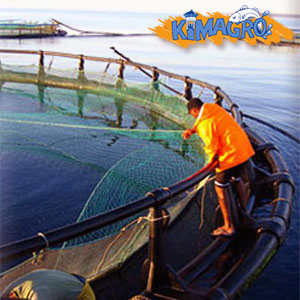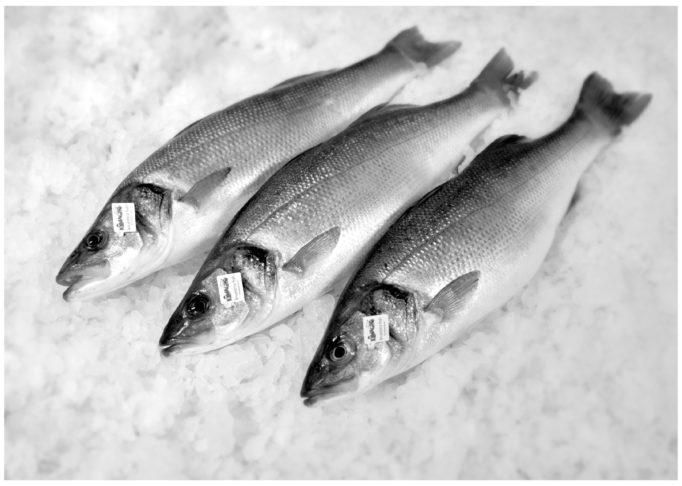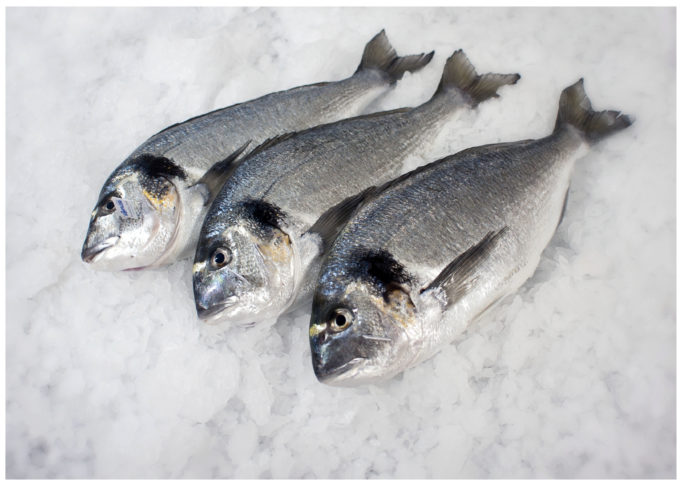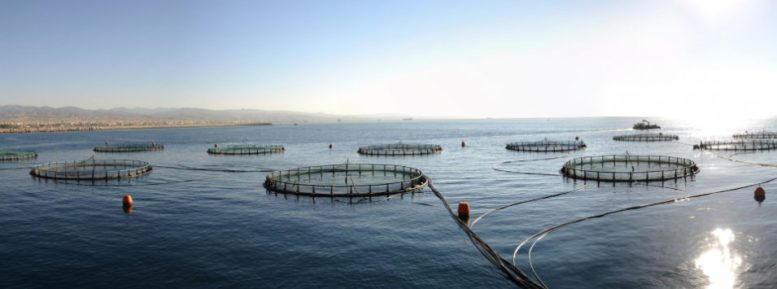Kimagro Fishfarming Ltd, a producer of Mediterranean seabass and Mediterranean seabream based in the New Port of Limassol, Cyprus, has recently concluded Friend of the Sea (FOS) renewal audit for both species, and can proudly continue to display the FOS international sustainability seal of approval on its products. “This certification renewal is a confirmation of the sustainable origin and high quality of our fish,” says Antonis Kimonides, Owner and Managing Director of Kimagro. “The Friend of the Sea certification sends a very clear message to our customers regarding our commitment to environmental conservation.”
Founded in 1989, Kimagro is a family-run aquaculture company led by Antonis Kimonides who has over 30 years experience in the marine aquaculture industry, and holds a Masters degree in Oceanography.
The main mission of Kimagro is to produce and distribute sustainably farmed fish that sets the highest standard for freshness, taste and quality, and to provide complete customer satisfaction, starting from the wholesaler and finishing with the home chef.
In 1990, Kimagro was the first in Cyprus to research and build 43 open sea fish farms off the coast of Limassol, using floating cages with semi-automatic feeding system.
By 1996, Kimagro designed and manufactured a unique feeding platform, far from pollution and industrial activities, and set in place near the floating cages. Their fish feed does not contain hormones, antibiotics, GMO or PAP (Processed Animal Proteins), medicines, or formaldehyde to preserve freshness. The fish are free from stress related to habitat due to over-crowding or heavily stocked dense cages. The presence of a specific traceability system in Kimagro assures that certified products respect all the requirements. Each product is uniquely identified throughout the whole process.
In 2006, Kimagro became a Member of Green Dot Cyprus regarding its “package declaration,” and later met HACCP and ISO certification requirements.
In 2011, Kimagro’s brand name, Levantina Fish, became official to differentiate the highest quality sea bass and seabream in the region. In 2012, Kimagro received 3 Golden Stars for successful results in the initial participation of the iTQi Superior Taste Awards with its Levantina Fish seabass. Since 2013, Kimagro has received Golden Stars for superior taste of both its seabass and seabream. In the same year, Kimagro’s Levantina Fish received its first FOS certification for sustainable aquaculture.

Kimagro employee adjusts fish nets on a floating fish cage
Produce. Kimagro’s sea farms grow two major species: Mediterranean Seabass (dicentrarchus labrax) and Mediterranean Seabream (sparus aurata).
The Seabass is also called Branzino, Loup de Mer, Robalo, Lubina, or Spigola.

Seabass
The Seabream has more names emanating from its light golden bar. Depending on the country, the seabream also goes by the name of: Ajaj, Awrata, Chapaneta, Denees, Daurada/Dorada/Dorade/Daurade Royale/Dorado, Haksa, Gilthead, Goldbrasse, Koce, Kuldmerikoger, Lovrata, Murcielago, Orada/Orata/Ovrata, Tsipura/Cipura/Cupra, Wourata, or Zapatilla.

Seabream
Animal Welfare. The seabass and seabream are allowed to grow at nature’s pace and not forced to grow at a fast pace. They are fed with high quality and sustainable fish feeds through the unique Feeding Platform that uses electronic systems for more accurate and efficient daily distribution of feeds per cage. Levantina Fish feed on Ad libitum so that their growth and metabolism simulate their natural rhythms as far as possible, thus, ensuring animal welfare, which in turn produces a fish of superior quality.
The fish are maintained in low stock density cages and daily monitored by the Diving Team. Harvesting the fish is done by thermal shock in ice. The offshore cages have a fish density of 12-15 kg per square meter, and are equipped with video cameras to monitor feeding habits of the fish, and provide security to the farm. The floating cages are covered with special nets that can prevent birds from getting entangled.
Traceability and Monitoring. Kimagro employs a traceability system to monitor in full its practices and record keeping. The local Veterinary Authorities perform regular tests on the feeds. Kimagro uses only top reputable fish feed suppliers that are sustainable in their own practices, and source their fishmeal and fish oils from responsibly managed fisheries using efficient feed transportation and waste management. Kimagro also performs internal tests as part of its regular checks to ensure traceability of its products. This process was also checked during the Friend of the Sea Audit for Kimagro to be a fully certified Sustainable Aquaculture.
Kimagro operates its own hatchery, and all details are identified regarding development from the egg up to 2-gram fry stage, including the quality of both live and dry food. The fry from the hatchery are delivered in specific batch numbers to include the quantity and actual weight per batch. The fry are monitored through the life span of the fish and its development. The fry are spaced out in the cages throughout their lifetime in order to keep low- density levels. Traceability is maintained through the harvesting, packing, and delivery of consignment to the customer.
Environmental monitoring takes place every six months, in the summer and winter. Kimagro has its own Environmental Impact Specialist to deal with environmental obligations.
Sustainable Rearing Practices. Levantina Fish are raised in open sea fish farms, where no meadows of the protected endemic seagrass (Posidonia Oceanica) exist, a major environmental issue with other fish farms in the Mediterranean. The farms have excellent water quality and oxygenation, and travel from the fish farms to the packing site is a relatively short distance, intentionally.
Packing Site. In 2003, the EU approved Kimagro’s packing equipment that quickly sorts and grades the fish to the customer’s required sizes. Initially, it was HACCP-certified, which means Kimagro met international standard requirements for effective control of food safety. By 2007, it became ISO 22000-certified which means Kimagro has a food safety management system in place. The Company has also been FDA approved after undergoing an audit in 2014.
Friend of the Sea is an international certification program for products from sustainable fisheries and aquaculture. Over 500 companies in over 50 countries rely on FOS to assess the sustainable origin of their seafood. The audits performed on the companies are based on the best and the most updated available scientific data, and are run by accredited independent certification bodies.
